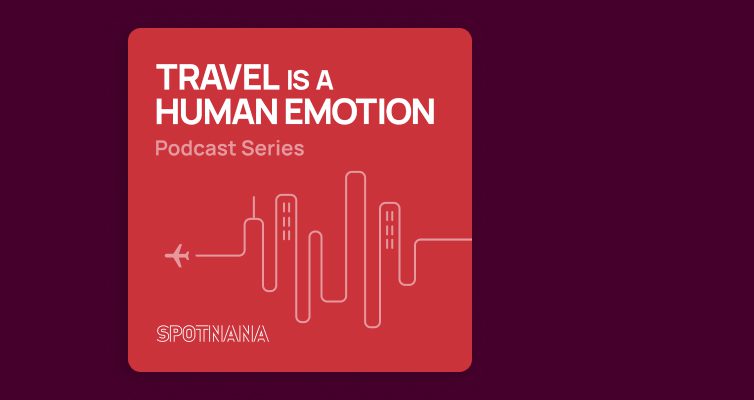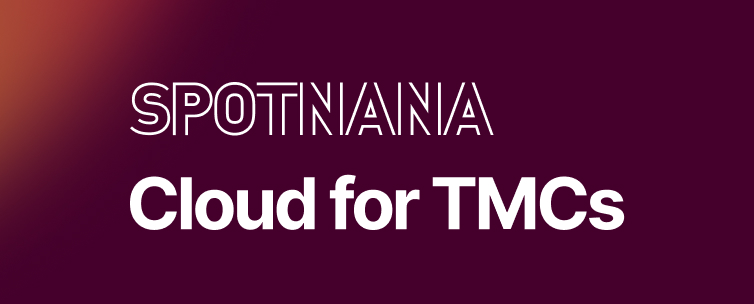There’s nothing easy about travel
Many of Spotnana’s current partners initially wrestled with the question of whether they should build their own travel solution from scratch. Here are a few of the benefits of working with Spotnana that influenced their thinking.
Reduce development and operating costs
Everyone is familiar with booking travel on consumer sites. While it seems simple on the surface, travel is massively complex behind the scenes. Here are a few examples to help illustrate:
Content fragmentation
Sources of travel content are highly fragmented and often built on pre-internet technology that is very difficult to integrate. To provide comprehensive access to air, hotel, car, and rail inventory, Spotnana has developed direct NDC integrations to top airlines as well as integrations with GDSs, low-cost carriers (LCCs), OTAs, rail aggregators, and hotel aggregators. The API for every content source is unique and is in a constant state of change. Our Content Engine handles the heavy lifting of breaking content down into constituent data elements, normalizing this information, and making it available to be displayed in a consistent manner.
Travel content is highly complex, inconsistent, and often duplicated across multiple distribution channels. We consume pricing, images, fare rules, cabin classes, amenities, loyalty benefits, and more for each piece of travel inventory, and we dedupe content across sources.
Travel booking is fundamentally a shopping experience, and booking tools with inferior inventory struggle to gain adoption. We constantly add more direct integrations and content sources to our platform, since it takes ongoing investment to provide the best travel content in today’s rapidly evolving distribution landscape.
Aggregating all of this content from disparate sources and displaying it consistently with overlaid policies and negotiated rates in a matter of seconds requires a massive development effort and hefty cloud computing costs.
Payments
Payments in the travel industry can be very complex. Each travel provider decides which forms of payment they will support. While most accept credit cards, some only accept specific card types and providers. Some airlines support unused ticket credits as a form of payment and some only accept cash payments. Major car rental companies support direct billing tied to a corporate account. Supported payment methods and the payment gateways that operate behind the scenes can vary by country.
Corporations often want to use a mix of central cards, virtual cards, individual cards, and even personal cards. Some cards have security elements and extended data elements that may or may not be required or supported by a travel provider. Some corporations want travelers to pay for ancillaries and upgrades on their personal cards.
Fares can be refundable, non-refundable, exchangeable for free, exchangeable with a fee, or non-exchangeable. Fare rules have to be carefully tracked and implemented for each purchase, cancellation, and exchange.
Some corporations want to have online booking fees and agent fees charged to the same form of payment as the travel purchase, and others want to use a separate card or receive a monthly invoice.
Something as simple as paying for travel is far more complicated that it may seem and requires a substantial development effort.
Self-service trip changes
Booking a trip is just the beginning of a traveler’s journey. Plans change, and it’s critical to enable travelers to cancel, change, and update their itineraries in real time. Modification workflows are complex and require addressing a tremendous number of corner cases. Adding to the complexity, content sources each handle changes in a different way.
For air bookings alone, Spotnana supports self-service flight changes across GDS, NDC, direct connections, and LCC bookings. Our capabilities include support for changing partially flown trips, adding additional segments, modifying bookings where a traveler is waitlisted for an upgrade, and exchanging round-trip tickets for one-way fares – all of which require deep travel knowledge to implement. Similar capabilities are supported across hotel, car, and rail bookings. Spotnana also supports self-service changes to seats, loyalty program numbers, known-traveler numbers, and more.
Building these capabilities has required intense collaboration with developers across a long list of travel providers and content aggregators.
Servicing infrastructure for travel agents
Travel solutions need to support a wide range of users including corporate travelers, guest travelers, arrangers, administrators, and travel agents. Travel agent needs are particularly complex to support, because they handle a wide variety of requests while dealing with the urgency created by imminent departure schedules and unexpected travel disruptions.
Spotnana has devoted an entire team to creating an Agent Desktop that sits on the same infrastructure as our Online Booking Tool. Agents using our travel platform see the same content, policies, preferences, and negotiated rates as the travelers they serve. Automated queues triage urgent requests, and agents benefit from all the automated change management workflows we’ve built into our tech stack for travelers.
Accelerate time to market
These examples are just a small fraction of the complexity that lies beneath the surface when it comes to building a travel solution. The reality is that online booking tools have been around for decades, and corporations expect a huge amount of functionality out-of-the box.
In addition, the required tech stack for a travel solution is massive and requires working with legacy systems that are hard to integrate. The core systems for managing airline bookings today go back to the 1960’s and use text files because relational databases hadn’t been invented yet. Developers have to understand and interface with the legacy way of doing things in order to deliver a functional product.
New travel sellers also need to to negotiate commercial agreements with each major supplier in every country where they want to provide access to local travel inventory, or find local partners with these agreements in place. This alone can take years for a dedicated team of employees and requires a huge amount of travel expertise as well as capabilities to manage bookings and fees in local currencies with local taxes.
While it may seem simple to cobble together a few content sources and off-the-shelf components of a travel solution, the reality is that the effort, cost, and time to turn these elements into a competitive offering is deceptively large and likely to create a significant distraction that drains critical resources away from your core business.
Spotnana allows you to start selling travel in a matter of weeks. In addition to providing a comprehensive travel platform that supports all major travel modalities and all key personas, we offer a turn-key servicing solution through our growing ecosystem of TMC partners, and we provide a wide range of flexible integration and white labeling options. From day one, Spotnana was built to enable other companies to sell travel.
Spotnana brings next generation travel experiences to customers inside the Brex Empower travel and expense platform. Empower users gain access to the unrivaled travel options, easily see their travel policy on the mobile app at the time of booking, and enjoy automated receipt collection, memos, and approvals on trips.
– Henrique Dubugras, co-Founder and co-CEO at Brex
Reduce market risk
When you provide your customers with an industry-leading travel solution, you can generate incremental revenue, increase customer loyalty, and deepen customer relationships. However, if you think about the last time you spent hours in an airport due to flight delay or cancellation, you have a sense for the anger and frustration your users will feel if your travel solution isn’t up to par.
Spotnana is solely dedicated to building the world’s most advanced travel platform and making it available for others to take to market. We enable you to deliver exceptional travel experiences that set you apart from the competition.
Our leadership team combines travel industry experts and technology experts who have held leadership roles at some of the largest software companies in the world. We know how to build great software, we have the industry expertise to build things in the right way, and we have the relationships to drive innovation across the travel industry.
By partnering with Spotnana you eliminate the risks and unknowns that come with entering a new market, and you gain the confidence that you’ll be able to deliver the most advanced capabilities to your customers.
Spotnana has been an incredible partner. Their technology is easy to integrate, they deliver an exceptional experience for both travelers and admins, and their incredible pace of innovation is only accelerating.
– Naveen Singh, CEO at Center
Future-proof your travel strategy
Spotnana was created to bring disruptive change and innovation to the travel industry. We have tackled the unsexy work of fixing the underlying plumbing of the travel industry, so our partners can benefit from modern infrastructure designed to support a new generation of travel experiences.
It’s our strategy to serve as a catalyst for travel innovation and always be at the forefront of what’s new. One way we achieve this is by building direct integrations to the world’s largest travel suppliers. This approach gives us access to the best possible traveler experiences with most comprehensive content and competitive prices, creating a foundation for driving future innovation. Wherever possible, we want to be first to market with new capabilities and increasingly we’re the company large suppliers are choosing to co-create new ideas.
By working with Spotnana, you join an ecosystem of innovators and benefit from the latest advances in travel. Let’s talk about how we can work together to bring a new generation of travel experiences to your customers.
Spotnana added support for NDC redemptions of EDIFACT-based flight credits in a matter of weeks. Their next-generation modern infrastructure is ideally suited for NDC, and we look forward to working together to bring new innovations to market.
– Anthony Rader, Director of Airline Retailing Technology at American Airlines



